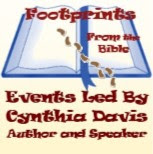Her story is found in the Old Testament Book of Judges, chapters 4 and 5. She is the fourth of the ‘judges’ (usually military leaders) of Israel during the years between the conquest of Canaan and the anointing of Saul. This is approximately 1200-900 BCE. Deborah probably led the people around 1100. During this time the Israelites were living among and harassed by the people of the land—the Amorites, Hittites, Perizzites, Hivites, and Jebusites among others. They were often tempted to stray after the local deities and were then punished by oppression until “the people cried to the Lord” who “raised up a deliverer.”
During the time of Deborah, “the Lord sold them into the hand of Jabin king of Canaan, who reigned in Hazor.” (Archeological evidence has been found for Hazor and for Jabin!) Unlike the male ‘judges’ she was actually a prophetess who “used to sit under the palm of Deborah between Ramah and Bethel.” Obviously Deborah was also known for her ability to judge wisely because “the people of Israel came up to her for judgment.” (Judges 4:5)
Seemingly out of the blue, Deborah “summoned Barak…and said to him “The Lord, the God of Israel, commands you…gather your men…and I will give [Sisera, Jabin’s general] to meet you.” Then something surprising happens. Barak tells Deborah, “…if you will not go with me, I will not go.” (Judges 4:6-8) Doesn’t that strike you as odd? A man who insists that a woman accompany him into battle!
So Deborah goes with Barak, warning him “the road on which you are going will not lead to your glory, for the Lord will sell Sisera into the hand of a woman.” (Judges 4:9) Deborah was wise to call Barak as a military leader. She advises him to wait on the heights of Mount Tabor for the army of Sisera. “Even with the 900 chariots of iron and all the men that were with him,” Sisera could not stand against the 10,000 men of Israel attacking from above. (Judges 4:14) Barak and Sisera meet in battle and “all the army of Sisera fell by the edge of the sword…But Sisera fled away on foot to the tent of Jael, the wife of Heber the Kenite.” (Judges 4:16-17)
Jael fulfills the prophecy of Deborah. After Sisera falls asleep in the tent, she “took a hammer in her hand, and went softly to him and drove the peg into his temple, till it went down into the ground.” (Judges 4:21) Who says the Bible is all sweetness and light? Barak comes looking for Sisera and Jael shows him the body. “So on that day God subdued Jabin the king of Canaan before the people of Israel.” (Judges 4:24)
Deborah and Barak raise a song that glorifies God and honors the two women instrumental in the victory, Deborah and Jael. “…you arose, Deborah, arose as a mother in Israel…. Most blessed of women be Jael…So perish all thine enemies, O Lord!” (Judges 5:7, 24, 31) Then the “land had rest for 40 years.”
The song of victory echoes Psalm 37, which proclaims, “But the wicked perish, and the enemies of the LORD are like the glory of the pastures; they vanish—like smoke they vanish away. The wicked borrow, and do not pay back, but the righteous are generous and keep giving; for those blessed by the LORD shall inherit the land, but those cursed by him shall be cut off.” (Vs. 20-22)
Deborah received honor for her role in delivering Israel, although she was an advisor in the background rather than the military hero. How often do we try to be noticed for the things we do? Deborah did not act until she knew what God wanted her to do. Then she was secure enough in her role to inform Barak that the final victory would not be his, but would go to a (lowly and foreign) woman.
This week, in the midst of the heat of summer, might be a good time to stop and consider how much we, like Deborah, listen to God vs. how many times we try to do ministry in our own strength. I know that is something I need to meditate on.
Next week, come back to see what Miriam bat Amram can tell us about healing—physical and spiritual.







.jpg)


